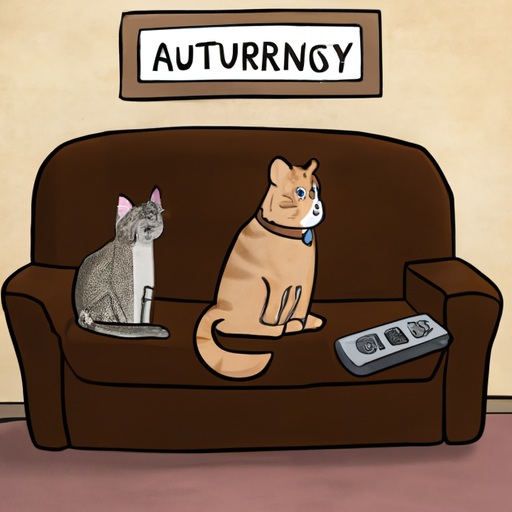As you settle down on the couch and reach for the remote, you may notice your feline friend take up a prime viewing spot. It might seem odd, but cats can be as engrossed in the latest Netflix series as their human companions. However, if you have a dog, you may notice they are less inclined to join in on the binge-watching. This discrepancy may leave you wondering, why do cats watch TV, but dogs don’t?
Table of Contents
1. Understanding Cats and Dogs Vision
2. The Curiosity of Cats
3. The Disinterest of Dogs
4. The Impact of TV on Cats and Dogs
5. FAQs
Understanding Cats and Dogs Vision
Both cats and dogs see the world differently than humans. While we see a wide range of colors, cats and dogs have a more limited color spectrum. Cats have a keen sense of movement and contrast, making the flickering images on the screen particularly enticing. On the other hand, dogs, particularly those with a strong prey drive, may be less interested in the two-dimensional images on the screen.
The Curiosity of Cats
Cats are naturally curious creatures. Their eyes are drawn to anything that moves, and the flickering images on the screen are no exception. Some cats may watch TV because the quick movements and changing images stimulate their hunting instincts.
According to an article on BBC Earth, cats are particularly attracted to programs with birds or small rodents. The sounds of these animals can stimulate a cat’s hunting instincts and keep them glued to the screen. If you’re interested in learning more about the behaviors of cats, check out this article on One Top Dog.
The Disinterest of Dogs
In contrast to cats, dogs are often less interested in what’s happening on the screen. They are more drawn to real-life stimuli like sounds, smells, and physical interactions. This is not to say that dogs can’t or won’t watch TV, but they are generally less attracted to it than cats.
Research suggests that dogs are more likely to respond to TV if it features images of other dogs or animals. However, since TV screens can’t emit smells, dogs may lose interest quickly. For more on dog behavior and interests, check out One Top Dog.
The Impact of TV on Cats and Dogs
While cats may enjoy watching TV, it’s important to remember that it should not replace physical activity and play. Too much screen time can lead to obesity and other health problems in cats.
Dogs, on the other hand, may benefit from the absence of TV in their routine. They can focus on physical activity and social interactions, which are more beneficial to their health.
If you’re looking for tips on how to keep your pets active and healthy, One Top Dog has some great resources.
FAQs
-
Can cats and dogs see color on TV?
Yes, but not in the same way humans can. Cats and dogs see a more limited color spectrum. -
Why does my cat react to certain sounds on the TV?
Cats have very sensitive hearing and may react to sounds that mimic those made by their prey in the wild. -
Is it bad for cats to watch too much TV?
While it’s not necessarily harmful, cats shouldn’t replace physical activity with screen time. It can lead to obesity and other health problems. -
Why doesn’t my dog pay attention to the TV?
Dogs are more attracted to real-life stimuli like sounds, smells, and physical interactions. They also may not recognize the images on the screen as real.
Understanding your pet’s behavior can strengthen your bond and help you provide the best care for them. So whether your cat is a TV enthusiast or your dog prefers to play fetch, remember that their unique traits and behaviors are part of what makes them special.



